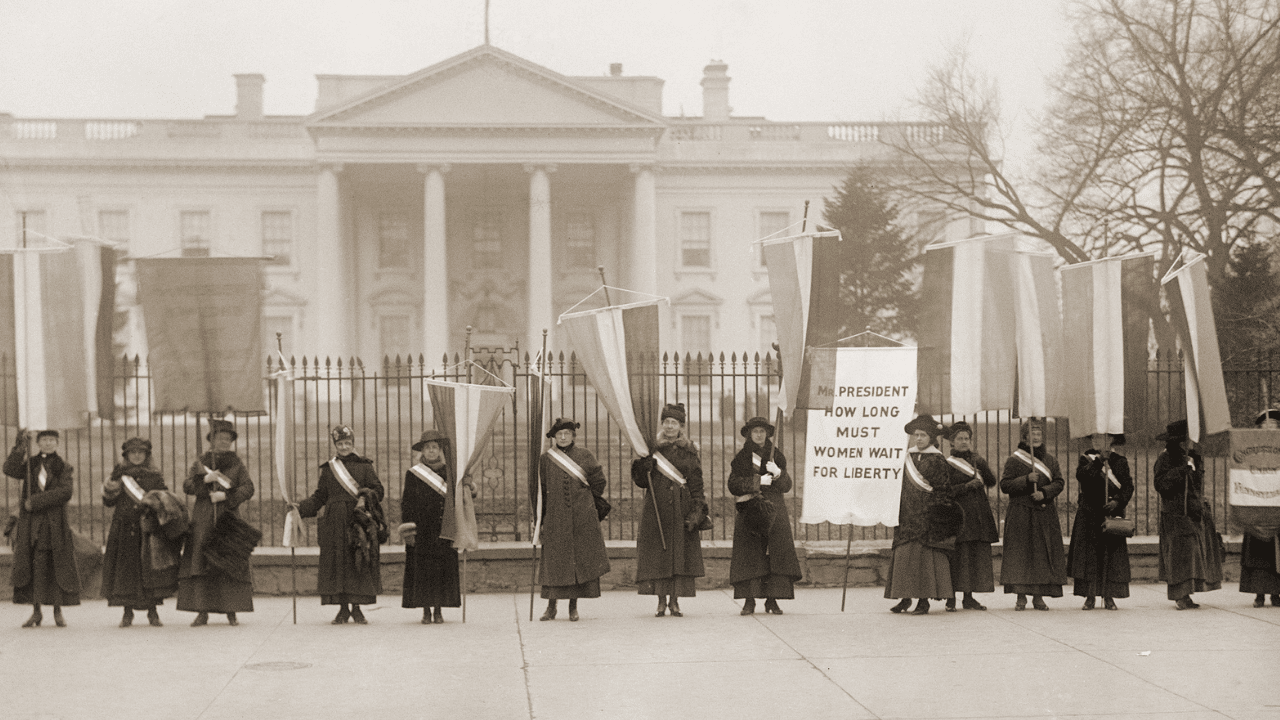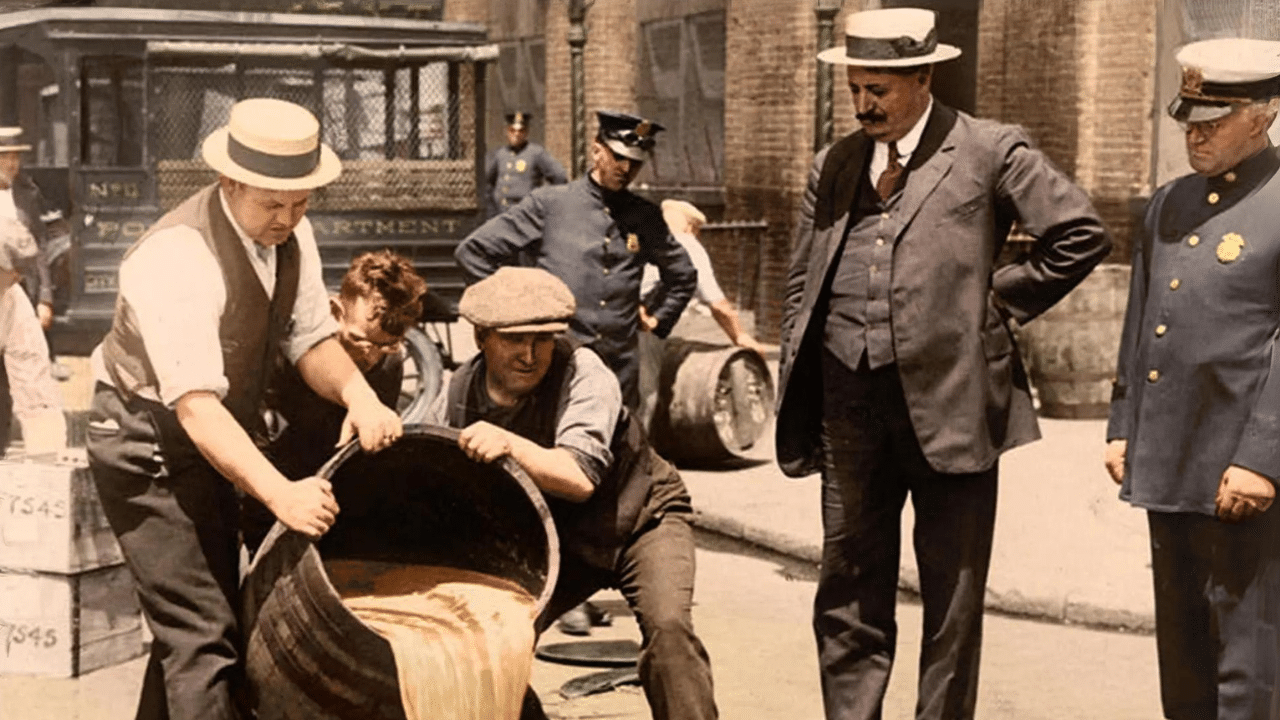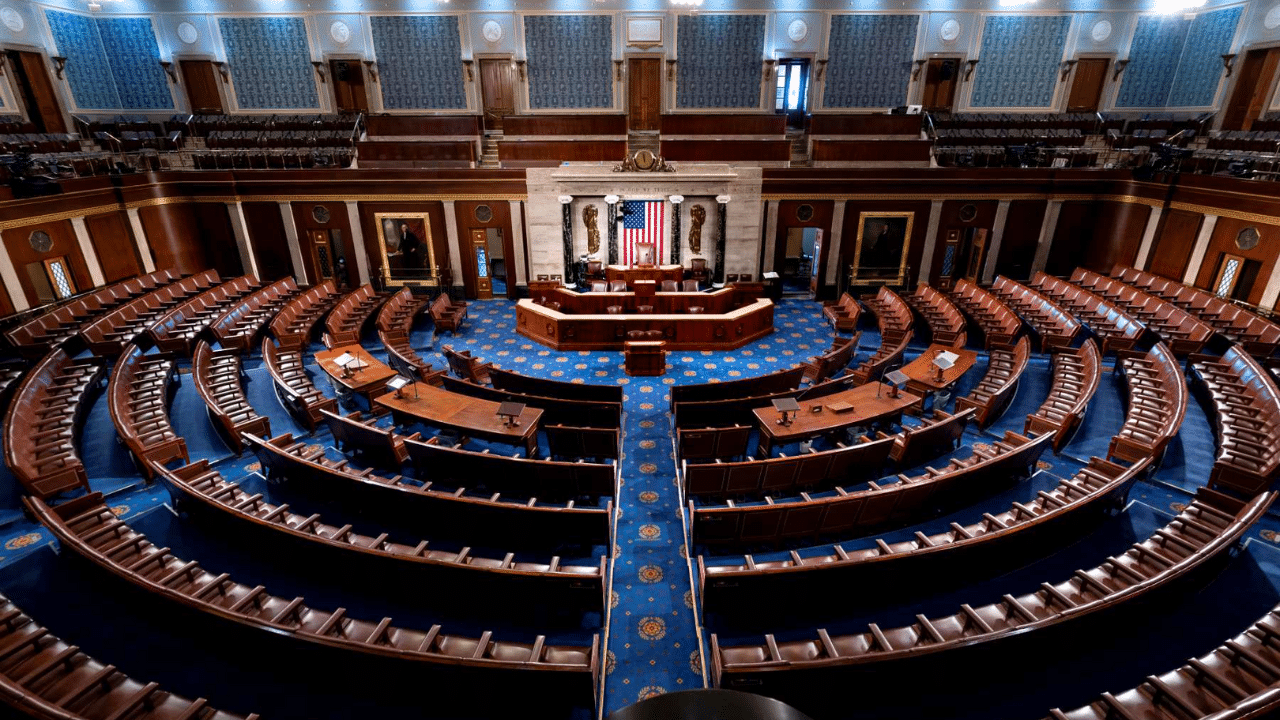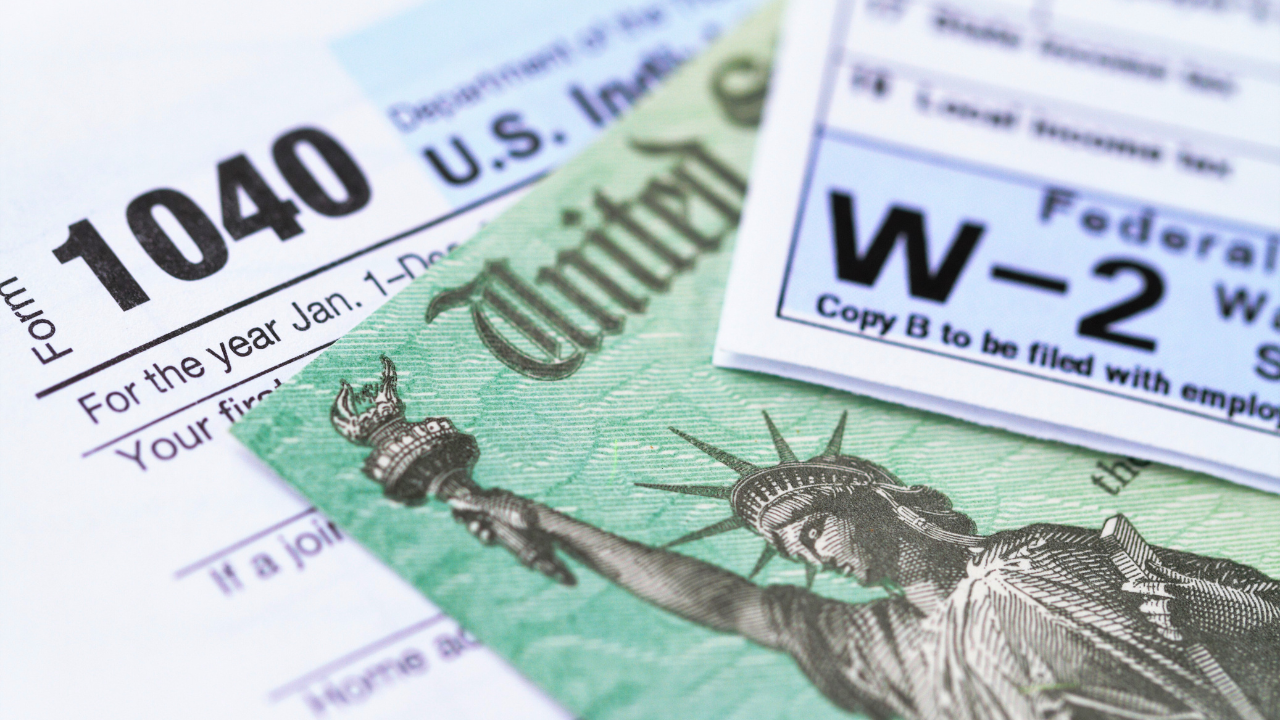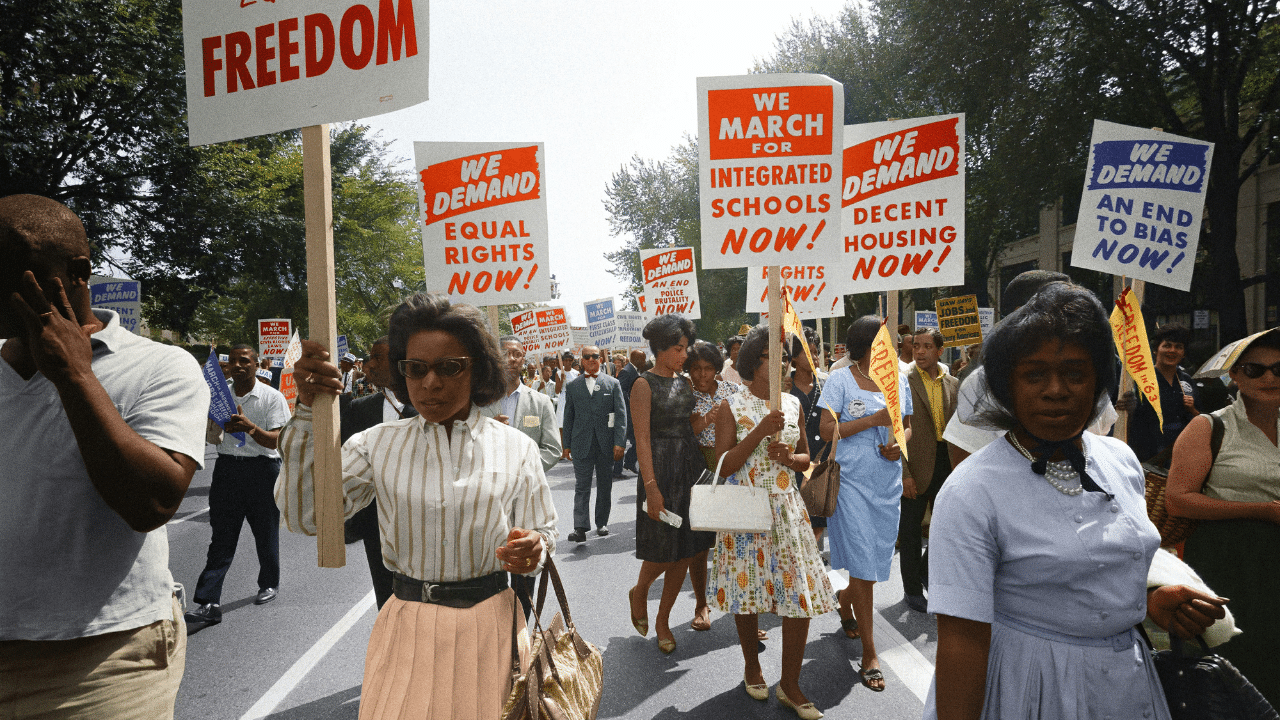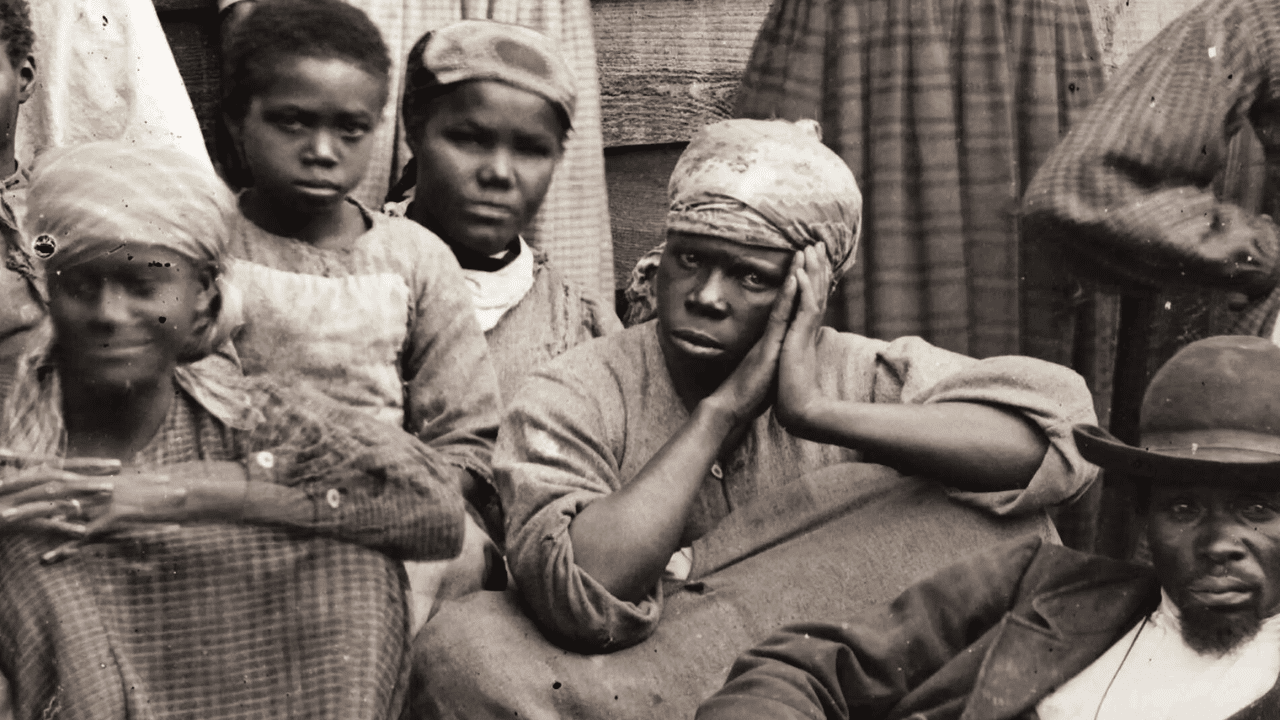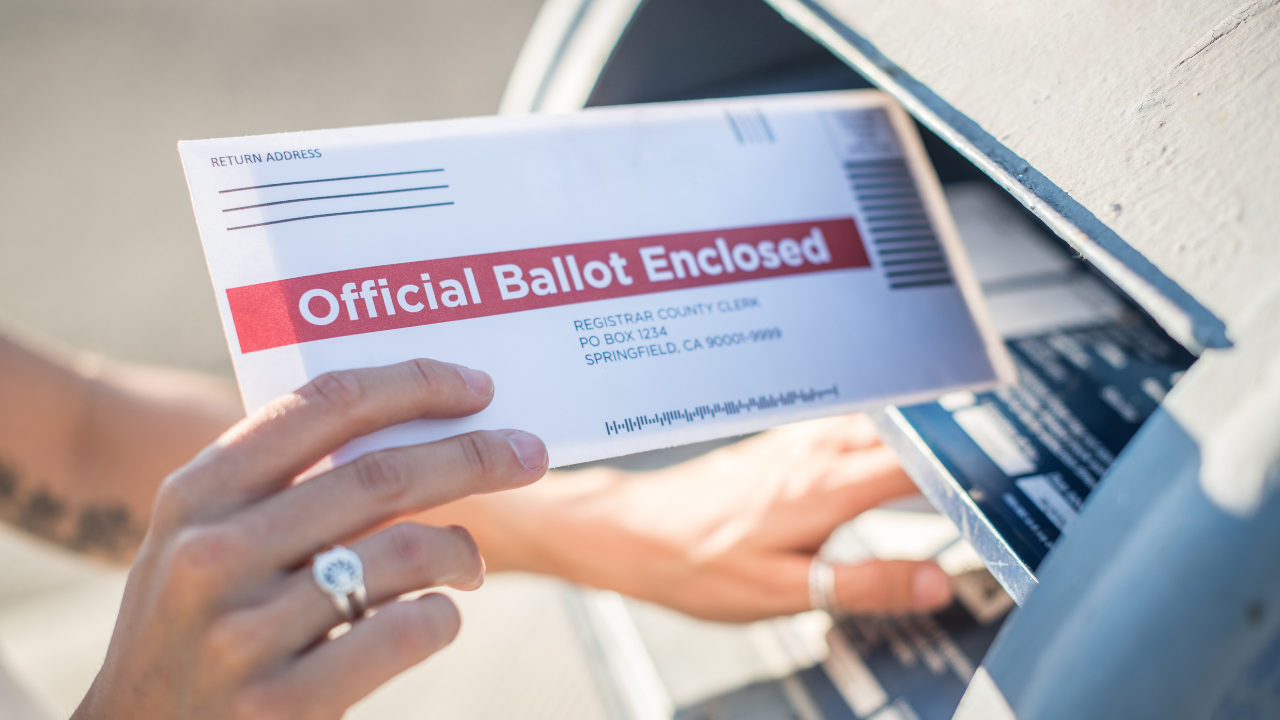The Nineteenth Amendment to the Constitution of the United States granted women the right to vote....

The Eighteenth Amendment to the United States Constitution prohibited the production, transportation, and sale of intoxicating liquors in the United States and its territories....
The Seventeenth Amendment to the Constitution of the United States provides for the direct elections of senators to the United States Senate for each individual state in the country....
Let's Chat, Consult, and Conquer Together!
The Fourteenth Amendment to the United States Constitution is a consequential amendment protecting several civil and political rights of the people. The Constitutional Amendment establishes citizenship rights, equal protection under the law, and prohibits state and local government from depriving any person of life, liberty, or property without due process...
The Thirteenth Amendment to the Constitution of the United States outlaws slavery, and gives Congress the power to create laws to enforce this prohibition, and punish those who violate such laws. What is the Thirteenth Amendment in simple terms? The Thirteenth Amendment abolished the institution of chattel slavery, and the...
The Twelfth Amendment to the Constitution of the United States modifies and supersedes Article II, Section 1, Clause 3, which explains the process followed by the Electoral College in counting the votes of the electors on Election Day. What is the Twelfth Amendment in simple terms? The Twelfth Amendment dictates...
Your Legal Roadmap: Answering Your Questions
Question 1
What Speech is protected by the First Amendment?
The First Amendment to the United States Constitution protects freedom of speech, which means the government has no power to restrict expression because of its message, its ideas, its subject matter, or its content. Free speech is the right to express any opinion in public without censorship or restraint by the government. Freedom of speech may be exercised in a direct way with words, or a symbolic way with actions. The right to express oneself is also recognized as an inherent human right by the United Nations in Article 19 of the Universal Declaration of Human Rights. Read more.
Question 2
Can felons own firearms?
The Second Amendment confers the individual right to keep and bear arms, but it is not unlimited. In general, law-abiding citizens’ keep and bear arms is protected, and government regulations may only infringe upon that right under limited circumstances. The Gun Control Act explains the following classes of persons are prohibited from owning or possessing certain weapons: Convicted felons, or persons convicted of a misdemeanor with a term of imprisonment exceeding one year... Read more.
Question 3
When can police search a cell phone?
Police generally need a warrant supported by probable cause to search a suspect’s cell phone. Cell phones differ in both a quantitative and qualitative sense from other objects that might be carried on an arrestee’s person. Modern cell phones have immense storage capacity, with the ability to store millions of pages of texts, thousands of pictures, or hundreds of videos. Prior to cell phones, a search of a person was limited by physical realities and generally constituted only a narrow intrusion of privacy. Because of the extensive privacy invasion, a warrant is required to search an arrestee’s cell phone. Read more.
Question 4
What does it mean to plead the fifth?
“Pleading the Fifth” is a colloquial term often used to describe when witnesses refuse to answer questions that may incriminate themselves. A criminal defendant on trial may invoke the privilege and not take the witness stand at all. The privilege extends to non-defendant witnesses, who may not be compelled to give testimony tending to show they committed a crime. A jury is also prohibited from drawing inferences from the witness’s invocation of the privilege against self-incrimination. Read more.
Question 5
Can you represent yourself in court?
Defendants who give up their right to counsel and invoke their right to self-representation—or their right to proceed pro se—must be advised of the dangers and disadvantages of self-representation, and their competence to waive their right will be assessed based on their literacy and ability to understand the rights they are giving up... Read more.
Question 6
What is an unreasonable search and seizure?
Although no single rubric definitively resolves which expectations of privacy are entitled to protection, the analysis is informed by historical understandings “of what was deemed an unreasonable search and seizure when [the Fourth Amendment] was adopted.” Carroll v. United States, 267 U.S. 132, 149 (1925). On this score, our cases have recognized some basic guideposts. First, that the Amendment seeks to secure “the privacies of life” against “arbitrary power.” Boyd v. United States, 116 U.S. 616, 630 (1886). Second, and relatedly, that a central aim of the Framers was “to place obstacles in the way of a too permeating police surveillance.” United States v. Di Re, 332 U.S. 581, 595 (1948). Read more.
M. Adams
Exceptional Defense Attorneys and firm.
I had the pleasure of being represented by Trey Porter Law. Attorney Joseph Strickland worked with me directly and was wit me at every court appearance and I couldn't be more satisfied with the outcome. From the outset, they set clear expectations on how they could help me avoid jail time for my DWI charge.
What truly stood out was their unwavering support throughout the entire process. They were always accessible, promptly addressing any questions I had. Ms. Aisley would answer my call and respond to my questions on the spot. This was especially crucial when my school and potential employers raised concerns about my pending charges. Joseph Strickland provided guidance on how to navigate these external challenges, showcasing their commitment to their clients beyond the courtroom.
Their professionalism, transparent communication, and dedication to my case made a significant impact, and I am grateful for the positive resolution they achieved. I highly recommend Trey Porter Law Firm for anyone in need of a skilled and supportive defense attorney and team.
I had the pleasure of being represented by Trey Porter Law. Attorney Joseph Strickland worked with me directly and was wit me at every court appearance and I couldn't be more satisfied with the outcome. From the outset, they set clear expectations on how they could help me avoid jail time for my DWI charge.
What truly stood out was their unwavering support throughout the entire process. They were always accessible, promptly addressing any questions I had. Ms. Aisley would answer my call and respond to my questions on the spot. This was especially crucial when my school and potential employers raised concerns about my pending charges. Joseph Strickland provided guidance on how to navigate these external challenges, showcasing their commitment to their clients beyond the courtroom.
Their professionalism, transparent communication, and dedication to my case made a significant impact, and I am grateful for the positive resolution they achieved. I highly recommend Trey Porter Law Firm for anyone in need of a skilled and supportive defense attorney and team.
C. Pollock
After a search of attorneys in my area I sought out Trey Porter Law Firm, impressed by the detailed information provided on the website and resounding client endorsements. From the introductory phone call, direct meeting, subsequent calls/emails/texts, and throughout my court appearance and disposition, all dealings have been exceptional. Everyone on the team has been friendly and responsive, while still being highly professional. I also very much appreciate the proactive approach taken throughout my case.
J. Givens
Mr. Porter an amazing attorney, he help me get through my situation swiftly and professionally as well as save me time and money in the process. Working with Mr. Porter was a pleasure, he kept me well informed and updated throughout the whole process which made things so much easier for me to understand. Mr. Porter and his team took the stress out of stressful situation. Mr. Porter and his team was always easy to contact and return my phone calls and emails promptly. I cannot give enough praise to Mr. Porter and his team. I had another attorney in the beginning who wad basically going to railroad me. I would definitely recommend Mr. Trey Porter again and again. If you’re looking for a great attorney who is affordable and knowledgeable and will fight for you, Trey Porter is the attorney to choose. Definitely a five star attorney.
J. Franklin
Trey and his staff are great and make sure to help you with all your questions to get through the process. Trey worked out the best outcome for my issue and got me an opportunity to get my charge expunged. Trey and his team made a negative experience end on a positive note. Truly recommend this law firm for your legal issues.
J. McKibbon
I would like to thank Trey Porter and his team regarding my DUI case. I truly could not have expected a better outcome regarding my case. This outcome only happened because of his expert knowledge and dedication to his profession. Trey really took time to explain every step of the process to me which really helped me make critical decisions on how to proceed. I am lucky to have come across his name and will only refer people to Mr. Porter regarding DUI offenses. Trey, I want to thank you publicly. Your expert handling of my D.U.I. got my case reduced to an outcome I was very pleased with. Nothing against my driving record, no loss of license and I’m positive this wouldn’t have turned out so well without you. Thanks for your hard work, empathy and responsiveness it really meant a lot to me.
R. Valdez
We hired Trey Porter to assist us last year. From the initial consultation up to and including the court hearing, Trey had a straight forward approach to the situation at hand. He explained everything along the way and was available at any time to discuss/answer any questions we had either by phone/text/email. With his experience and professionalism, we obtained the best outcome possible. We would highly recommend Trey Porter with no hesitation whatsoever. Five stars is definitely not enough!
B. Cantu
I highly recommend Trey Porter! He is very professional and attentive to each situation at hand. He does not beat around the bush. Straight forward and explains things very well. Easy to work with. Contacts you before you have to ever contact him. Detailed oriented. Driven to get you the best deal possible in your situation. Him and his staff were absolutely amazing for my situation. Thank you!
B. Patel
Trey is a phenomenal attorney that gets the job done right! He is dedicated to help his clients.
He made himself available and answered all my concerns immediately! I had faith in him and he continued to prove his expertise by helping me. I highly recommend Trey Porter!!
D. Lopez
Mr. Porter was exceptional! He answered all my questions, was thorough throughout my case. Really pushed to go above and beyond to get us the results we were needing. Excellent professional service and as a professional I can definitely say I recommend him.
C. Jef
100/100
Excellent experience with Mr Porter and TPL law offices. They fought for me and they won! I hired Mr Porter after an embarrassing incident. My license and employment were on the line. The office had excellent communication and personal service — even through text message! Totally recommend Trey Porter 100/100!
Excellent experience with Mr Porter and TPL law offices. They fought for me and they won! I hired Mr Porter after an embarrassing incident. My license and employment were on the line. The office had excellent communication and personal service — even through text message! Totally recommend Trey Porter 100/100!
T. Royal
5 STAR!
I hired Mr. Porter to represent my son in a DUI case. I was worried a conviction would ruin his future. Mr. Porter and the whole office were friendly, thorough, and poised throughout. They respond to text and calls almost instantly. We are just finishing the expunction process after the case was dismissed!!! I am grateful to Mr. Porter and recommend him to one and all. Excellent from start to finish. Thank you TPL!
I hired Mr. Porter to represent my son in a DUI case. I was worried a conviction would ruin his future. Mr. Porter and the whole office were friendly, thorough, and poised throughout. They respond to text and calls almost instantly. We are just finishing the expunction process after the case was dismissed!!! I am grateful to Mr. Porter and recommend him to one and all. Excellent from start to finish. Thank you TPL!
A. Renaud
Winning
I won with Attorney Trey Porter! Had a criminal DWI .15 charge, small accident, but no injuries. This was my first criminal charge of my life. Mr. Porter was great to talk to — as was the entire office staff and other attorneys. Everyone was SO NICE! 9 long months passed and my charge was dismissed. No probation. No conviction. This experience was well worth the money. I recommend Trey Porter, Attorney at Law.
I won with Attorney Trey Porter! Had a criminal DWI .15 charge, small accident, but no injuries. This was my first criminal charge of my life. Mr. Porter was great to talk to — as was the entire office staff and other attorneys. Everyone was SO NICE! 9 long months passed and my charge was dismissed. No probation. No conviction. This experience was well worth the money. I recommend Trey Porter, Attorney at Law.
Unlock the Perks of Choosing Us!
CHARGES DISMISSED
DRIVING WHILE INTOXICATED .15
Driving facts involved failing to maintain a single lane and speeding. Client refused breath test and forced law enforcement to obtain search warrant
for blood. Blood test result was not used after challenge from Defense, and State waived and abandoned charge.
CHARGES DISMISSED
DRIVING UNDER THE INFLUENCE
Client was a college student, worried about the collateral consequences of an alcohol offense. After negotiation and review of the traffic stop, the case was dismissed. Client received no criminal conviction. The charge was later expunged and deleted from client’s record.
CHARGES DISMISSED
DRIVING WHILE INTOXICATED .15+
Client was involved in minor accident. Client was at fault in accident. A young executive, client was concerned that a criminal conviction for DWI would result in termination. After review of the traffic
stop, it was clear the officer lacked probable
cause for arrest.
CHARGES DISMISSED
DWI 2ND
Client, a military veteran, was facing up to one year in jail. State could not prove intoxication by alcohol, and was prepared to proceed on loss of use by marijuana. After challenging the State to prove that marijuana was ingested at or near time of driving, and that marijuana impaired client’s driving, the State dismissed the case on the day of trial.
CHARGES DISMISSED
DRIVING UNDER THE INFLUENCE
Driving facts involved a false claim by police that taillight was out. After challenging the reasonable suspicion for the traffic stop, the State was forced to dismiss the case when video did not match police report. Client has since expunged arrest, and has no criminal record.
CHARGES DISMISSED
DRIVING UNDER THE INFLUENCE
Client is a public school teacher and faced immediate termination upon conviction. The facts of the case were bad. State was unwilling to budge in negotiation, and matter was set for trial – the last shot at avoiding a conviction and preserving client’s livelihood. State was forced to dismiss on day of trial. Client has no criminal record, and has since expunged the DWI arrest.
Request
a free consultation
Contact Trey Porter Today
The stakes are high. Criminal charges can have devastating, lifelong consequences. During the free, confidential consultation, Mr. Porter will answer questions surrounding your legal matter, and discuss and identify potential defenses.
Contact Trey Porter Today
Request a free consultation
Legal Insights Unveiled:
Your Path to Clarity
Your Path to Clarity
Results matter when life and livelihood are on the line. DWI arrests are warrantless arrests, and the State is legally bound to a burden of proving the charge beyond all reasonable doubt.
© 2024 Trey Porter | All Rights Reserved

